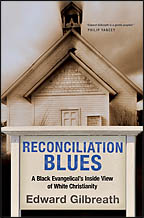 My friend Mark sent me an Associated Press story yesterday about a young woman named "Mary Christmas." For real.
My friend Mark sent me an Associated Press story yesterday about a young woman named "Mary Christmas." For real.Name origins and meanings have long intrigued me. Every time I think about having children, I come up with a list of potential names for them, then check the name's origins. If I had a boy, I'd like to name him Alex, which means "defender of mankind." Pretty impressive, right? Girl names are more challenging, since most are about beauty and sweetness. Nothing wrong with those qualities, but I wanted to choose a girl's name that was just as strong and bold as Alex. (Picking "Alexandra" seemed a bit of a cop-out.) So I looked up the meaning for Alicia, a name I've always loved. It means "noble, exalted nature." Not too shabby.
My interest with name origins began in fifth grade. Our teacher created an "All About Me" bulletin board, where each student would post photos of themselves and lists of their interests for one week. It also included the student's name origin, which the teacher looked up and posted for us. My classmates' names meant all kinds of wonderful things like "angel," "king," "conqueror," "beautiful one." Of course, I expected my name would be good, too. Imagine my surprise during the first day of "All About Holly" week, when I read my name meant "prickly, poisonous shrub." Guess who got teased all week long? ("Hey, Prickly!" "Stay away from Holly, she's poisonous!")
Still, I'd much rather live down a name than have to live up to one. Case in point: my friend Jessie. Most people don't know her real name, Jesus, and if I were her, I wouldn't tell, either. How on earth do you live up to "our Lord and Savior"? I suppose you can throw people off by using the Spanish pronunciation, Hay-SOOSE (though whenever I hear that name, I always want to say, "God bless you," and hand them a hanky. Culturally insensitive am I.). Then there was the guy at my college named Christian. Ironically, he's an atheist. Naturally, he went by "Chris."
Perhaps my brother, Michael Paul, has the best name combo of all. Michael means "one who resembles God." Whew, what a name to live up to! But the name Paul, which in Latin means "small or little," lightens that burden. My own personal translation of my brother's name: "one who resembles God ... a little."
At times, I'd rather label myself as a "Michael Paul" than as a "Christian." The word Christian, of course, simply means "follower of Christ." Unfortunately, I've heard plenty of other definitions: holier-than-thou, high-and-mighty, too-good-for-this-world-of-sinners. And I can understand why: It seems we Christians sometimes want to define ourselves as perfect, flawless, even sinless. We're often guilty of dividing the world between Christians and non-Christians, then proclaiming that "non-Christian" means "worthless, rejected, bad." Sometimes Christians forget that they, too, have a sinful nature. Sometimes Christians forget that they make mistakes, that they hurt others. That, even though we've accepted God's gift of forgiveness, we Christians still sin.
We also need to remember that those who aren't Christians are Michael Pauls, just like us. God made them. God loves them as deeply as you and me. They resemble God, and he wants them to know they're his kids, too.
The Christmas family from that AP story says their name keeps them in check. They are constantly reminded they're representatives of the holiday. And that reminds me I'm a representative, too--of Jesus Christ. When others define Christians as holier-than-thou, I've got to remember two things. First, they've decided on that definition because of some past event or interaction. And second, I just might be able to change their minds.
To ponder:
1) When is the word "Christian" a blessing to you? When is it a burden?
2) Think about your recent interactions. How might others be defining "Christian" based on how you represented Christ?
3) For fun, look up your name origin. You can use a search engine by typing your name along with "name meaning," or try http://www.thinkbabynames.com/.






